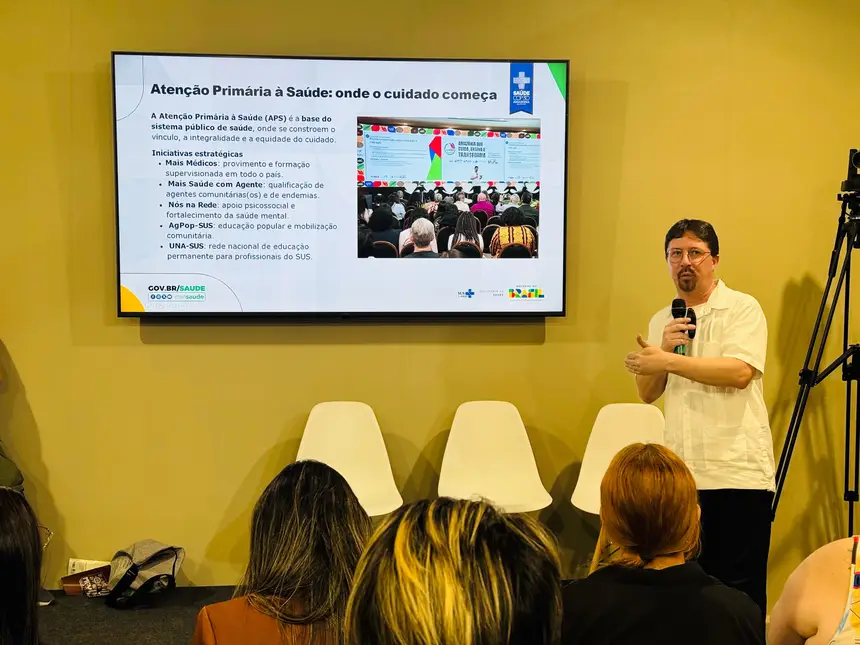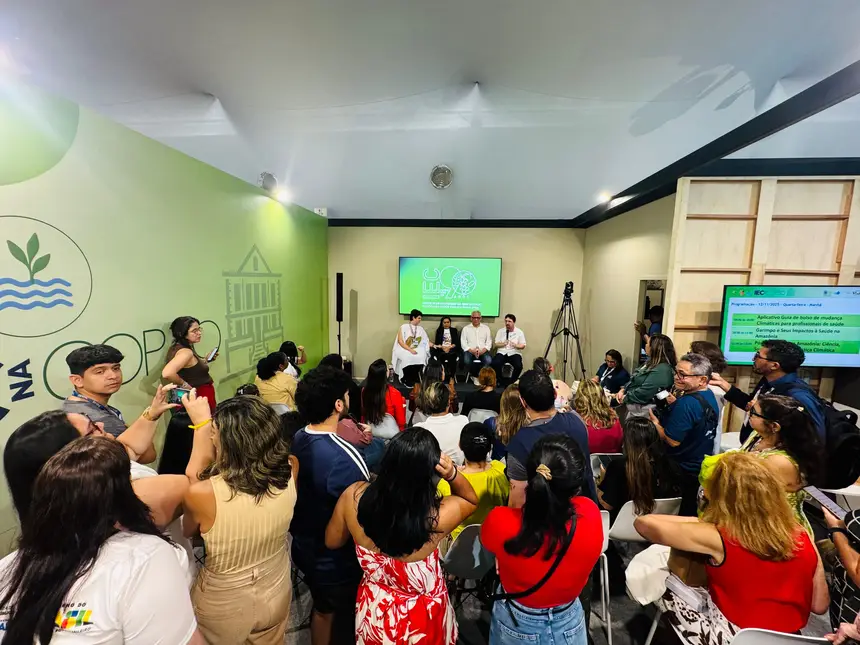Health policies in the Amazon are debated in the Green Zone of COP30
Sespa reinforces at the event promoted by the Evandro Chagas Institute the commitment to promote public health policies aligned with the principles of the SUS
Health policies aimed at the Amazonian reality were the theme of the panel "Amazon that cares, transforms, and teaches," promoted by the Evandro Chagas Institute (IEC), this Wednesday (12), in the Green Zone of the United Nations Conference on Climate Change (COP30). The aim of the meeting was to highlight how investment in people — workers, students, and communities — ensures health care and sustainability in the region.
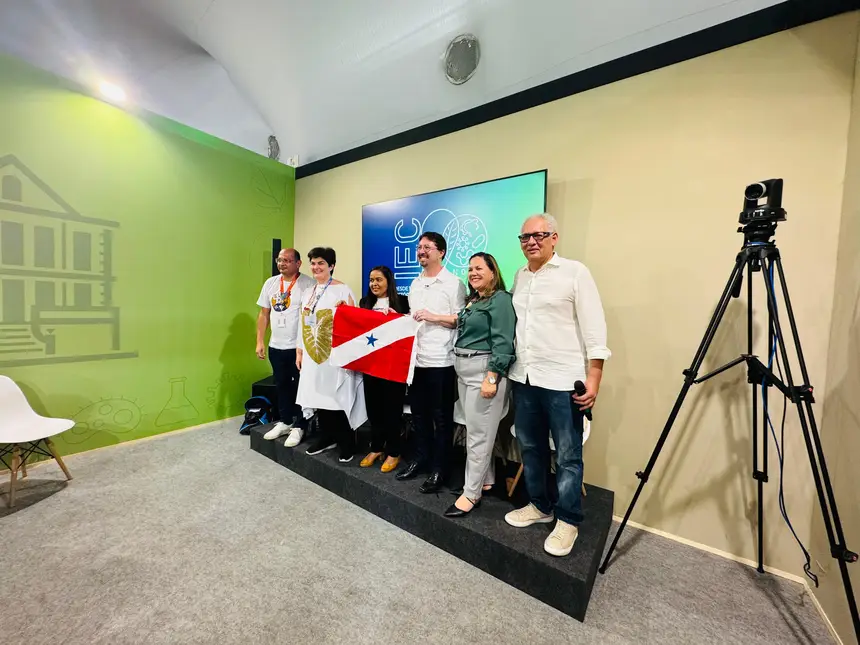
The panel featured the participation of Secretary Felipe Proenço from the Secretariat of Work Management and Health Education (SGTES/Ministry of Health); Deputy Secretary of Health Policy Management from the State Secretariat of Public Health (Sespa), Heloisa Guimarães; President of the Council of Municipal Health Secretaries of Pará (Cosems), Jucineide Barbosa; and Professor Paulo de Tarso from the Federal University of Pará (UFPA). During the debate, concrete results and commitments made between managers, academia, and civil society in the region were presented.
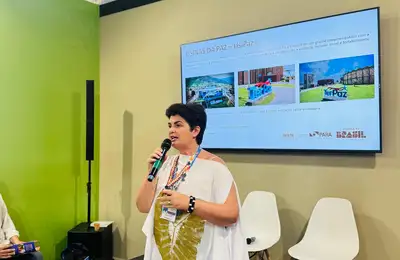
Deputy Secretary Heloisa Guimarães emphasized the importance of sharing experiences and information aligned with the global sustainable development agenda. "This debate is fundamental, very productive, and focused on the Amazonian reality, being demonstrated, discussed, and projected. We leave strengthened and motivated to continue this mission. It is not easy to provide health care in the Amazon, a territory with many rivers, forests, and various specificities. But we remain firm in this purpose," she stated.
Demands of the population - The director of the Evandro Chagas Institute, Lívia Martins, highlighted the relevance of broadening the understanding of those who do not live in the region about the demands and challenges of the Amazonian population. "We are very happy to use this space to foster discussions about health in the Amazon. The Evandro Chagas Institute envisioned the creation of this booth within COP30 precisely to highlight the importance of these actions in a region that requires special attention. Therefore, we need to train people, expand assistance, and ensure that health actions reach more locations. It is a significant challenge, but it is through dialogue and the exchange of experiences that we strengthen the understanding of the real needs of our population," emphasized Lívia Martins.
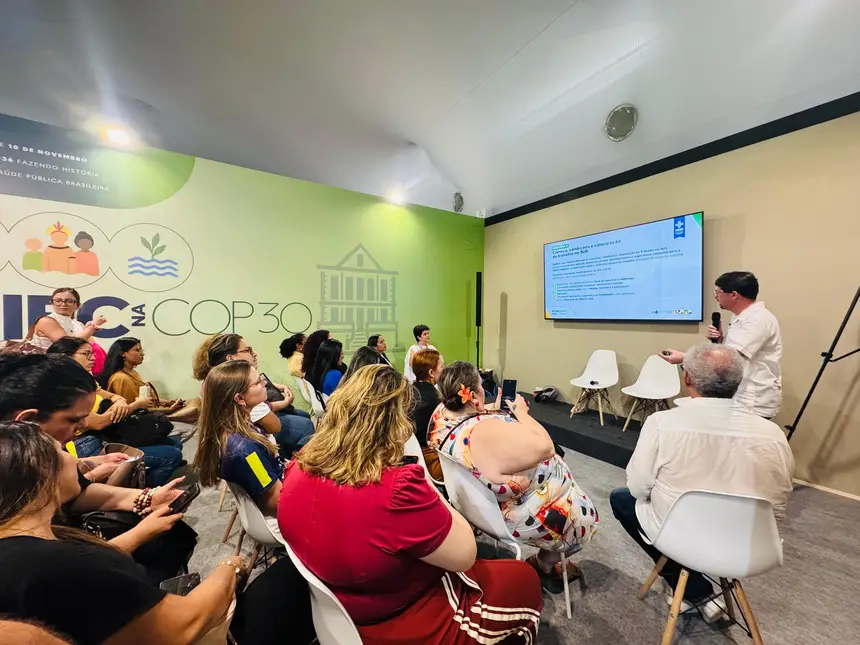
Monitoring - During the event, the audience was able to actively participate, presenting their questions and contributing reflections on strategies to strengthen health in the region. "We are bringing the realities of each Amazonian municipality. Thus, we can monitor the evolution of how we are acting in each locality. Today, we had several explanations of different contexts, and with that, we made plans to boost the development of municipalities in Northern Brazil," said Ivone Neta.
The debate reinforced the commitment of the Government of Pará, through Sespa, to promote public health policies aligned with the principles of the Unified Health System (SUS). Sespa's presence at COP30 reaffirms the importance of strengthening integrated and sustainable actions that ensure health care and quality of life for the populations of the Amazon.
Text: Mariela Oliveira - Ascom/Sespa


